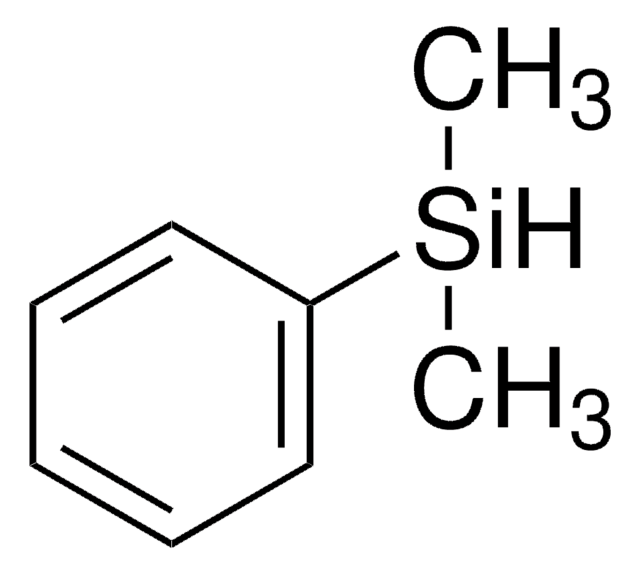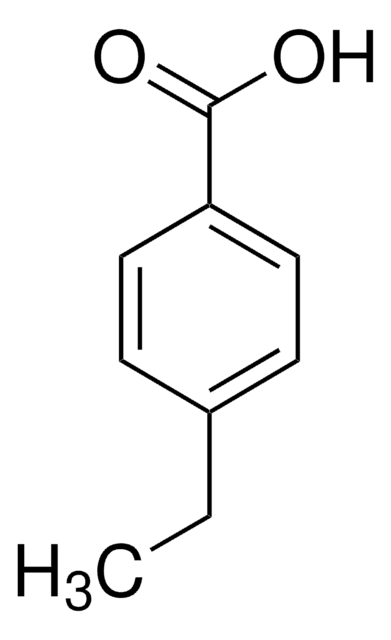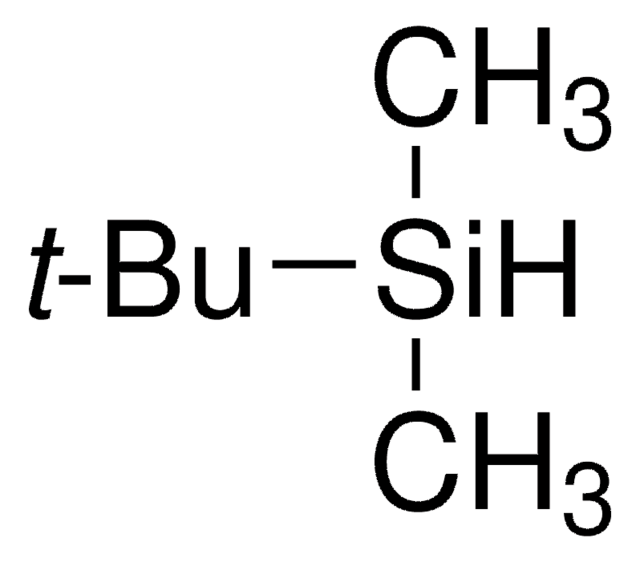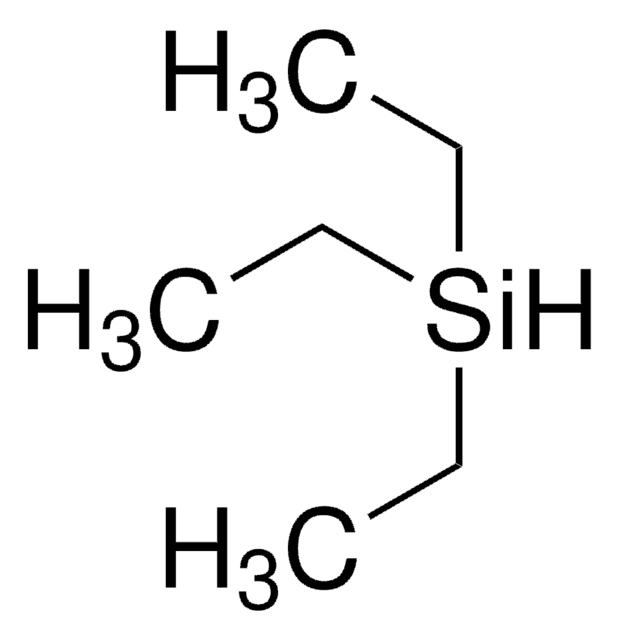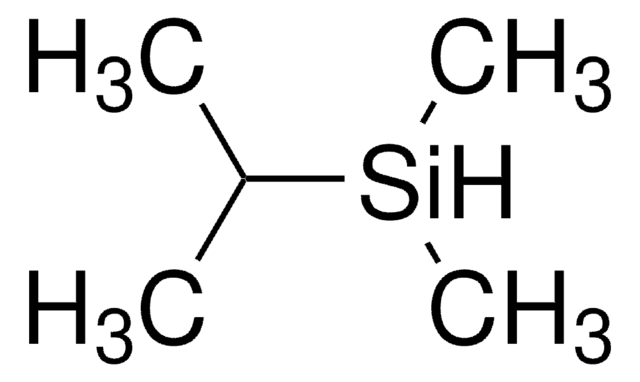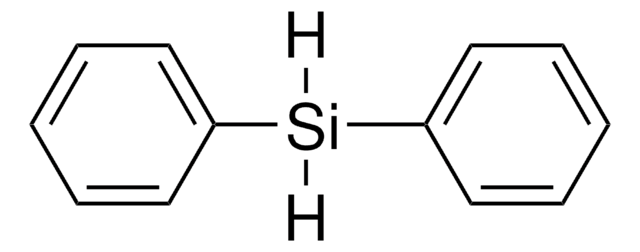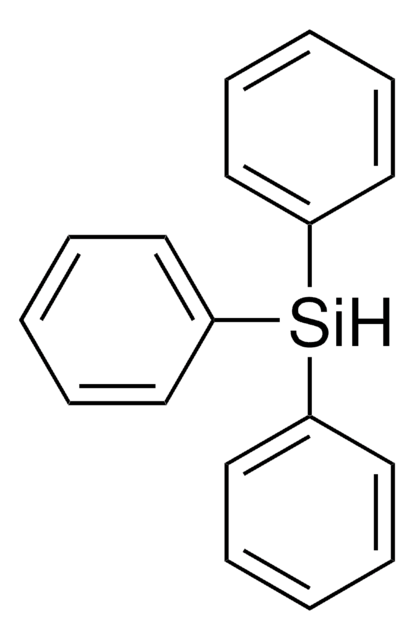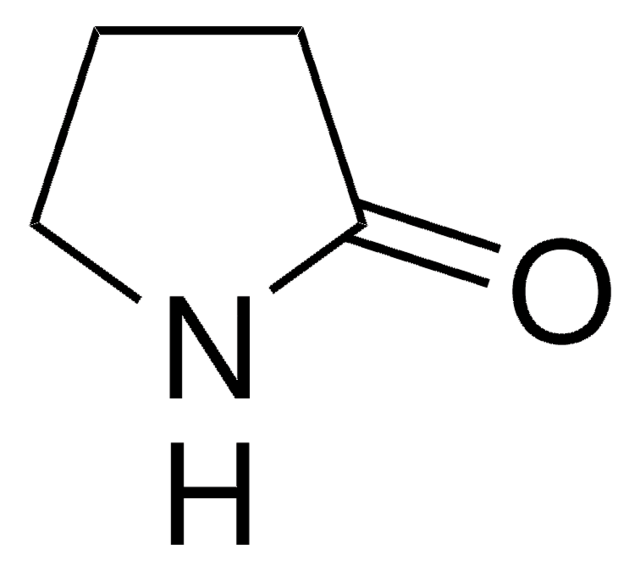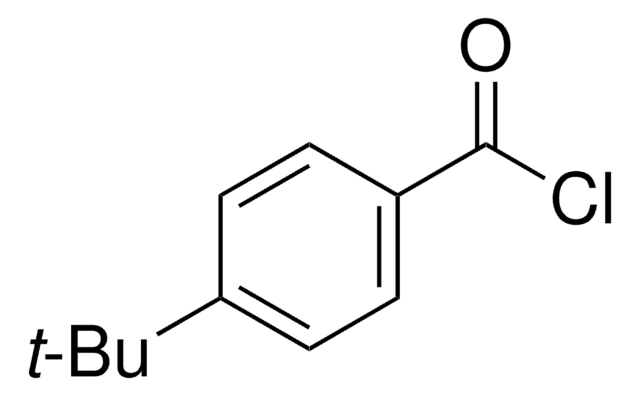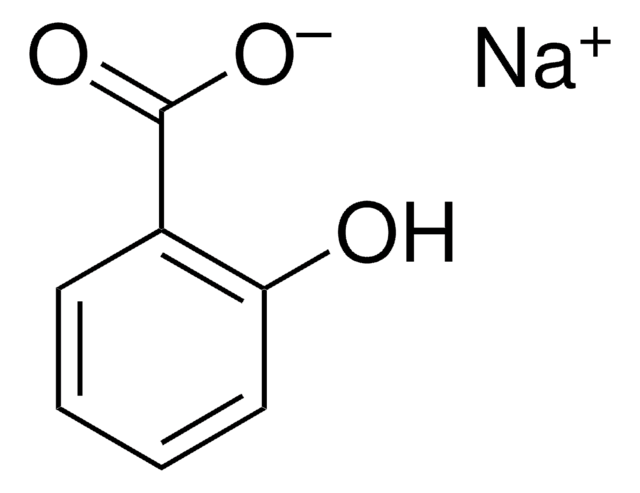Wszystkie zdjęcia(2)
Kluczowe dokumenty
268402
4-Isopropylbenzoic acid
≥96%
Synonim(y):
Cumic acid, Cuminic acid
Zaloguj sięWyświetlanie cen organizacyjnych i kontraktowych
About This Item
Wzór liniowy:
(CH3)2CHC6H4CO2H
Numer CAS:
Masa cząsteczkowa:
164.20
Numer WE:
Numer MDL:
Kod UNSPSC:
12352100
Identyfikator substancji w PubChem:
NACRES:
NA.22
Polecane produkty
Poziom jakości
Próba
≥96%
mp
117-120 °C (lit.)
rozpuszczalność
alcohol: soluble(lit.)
diethyl ether: soluble(lit.)
sulfuric acid: soluble(lit.)
water: slightly soluble(lit.)
grupa funkcyjna
carboxylic acid
ciąg SMILES
CC(C)c1ccc(cc1)C(O)=O
InChI
1S/C10H12O2/c1-7(2)8-3-5-9(6-4-8)10(11)12/h3-7H,1-2H3,(H,11,12)
Klucz InChI
CKMXAIVXVKGGFM-UHFFFAOYSA-N
Powiązane kategorie
Zastosowanie
4-Isopropylbenzoic acid (cuminic acid) was used in the synthesis of three new triorganotin carboxylates bearing methyl, butyl and phenyl substituents at tin, respectively. The products were fully characterized by spectroscopic and thermal techniques, with regard to the coordination number of tin atom, in solution and in the solid state.
Ta strona może zawierać tekst przetłumaczony maszynowo.
Kod klasy składowania
11 - Combustible Solids
Klasa zagrożenia wodnego (WGK)
WGK 3
Temperatura zapłonu (°F)
Not applicable
Temperatura zapłonu (°C)
Not applicable
Środki ochrony indywidualnej
dust mask type N95 (US), Eyeshields, Gloves
Wybierz jedną z najnowszych wersji:
Masz już ten produkt?
Dokumenty związane z niedawno zakupionymi produktami zostały zamieszczone w Bibliotece dokumentów.
Klienci oglądali również te produkty
Bruno Gaillet et al.
Biotechnology and bioengineering, 106(2), 203-215 (2010-02-24)
Fast and efficient production of recombinant proteins for structural and functional studies is a crucial issue for research and for industry. To this end, we have developed an efficient system to generate in less than 2 months, starting from the
Angiolini L, et al.
Journal of Organometallic Chemistry, 691(9), 1965-1972 (2006)
R W Eaton
Journal of bacteriology, 178(5), 1351-1362 (1996-03-01)
Pseudomonas putida F1 utilizes p-cumate (p-isopropylbenzoate) as a growth substrate by means of an eight-step catabolic pathway. A 35.75-kb DNA segment, within which the cmt operon encoding the catabolism of p-cumate is located, was cloned as four separate overlapping restriction
G J Pass et al.
Xenobiotica; the fate of foreign compounds in biological systems, 32(5), 383-397 (2002-06-18)
1. p-Cymene is an aromatic monoterpene found in the leaves of Eucalyptus spp. and is ingested in the diet of two marsupial folivores, the brushtail possum (Trichosurus vulpecula) and koala (Phascolarctos cinereus). The metabolism of p-cymene by liver microsomes from
L G Puskás et al.
DNA sequence : the journal of DNA sequencing and mapping, 11(1-2), 9-20 (2000-07-21)
Rhodopseudomonas palustris utilizes p-cumate as a carbon source both under anaerobic light and aerobic dark conditions. A gene cluster was isolated whose sequence showed high homology to genes which have been implicated the degradation of p-cumate in Pseudomonas pitida. Seven
Global Trade Item Number
| SKU | GTIN |
|---|---|
| 268402-5G | 4061826134665 |
| 268402-25G | 4061831819434 |
Nasz zespół naukowców ma doświadczenie we wszystkich obszarach badań, w tym w naukach przyrodniczych, materiałoznawstwie, syntezie chemicznej, chromatografii, analityce i wielu innych dziedzinach.
Skontaktuj się z zespołem ds. pomocy technicznej